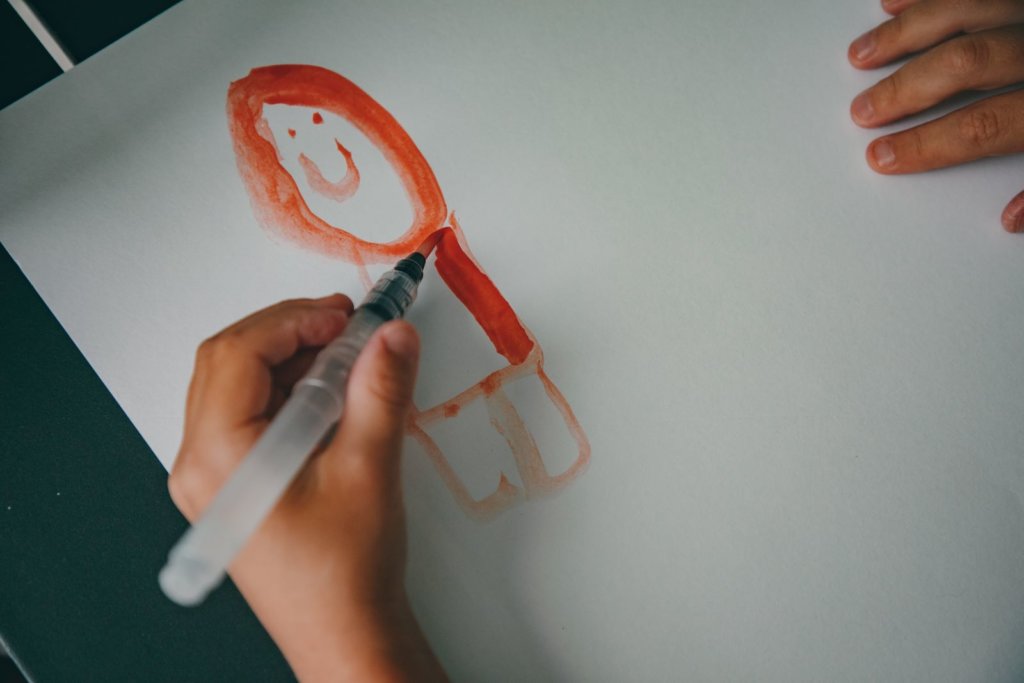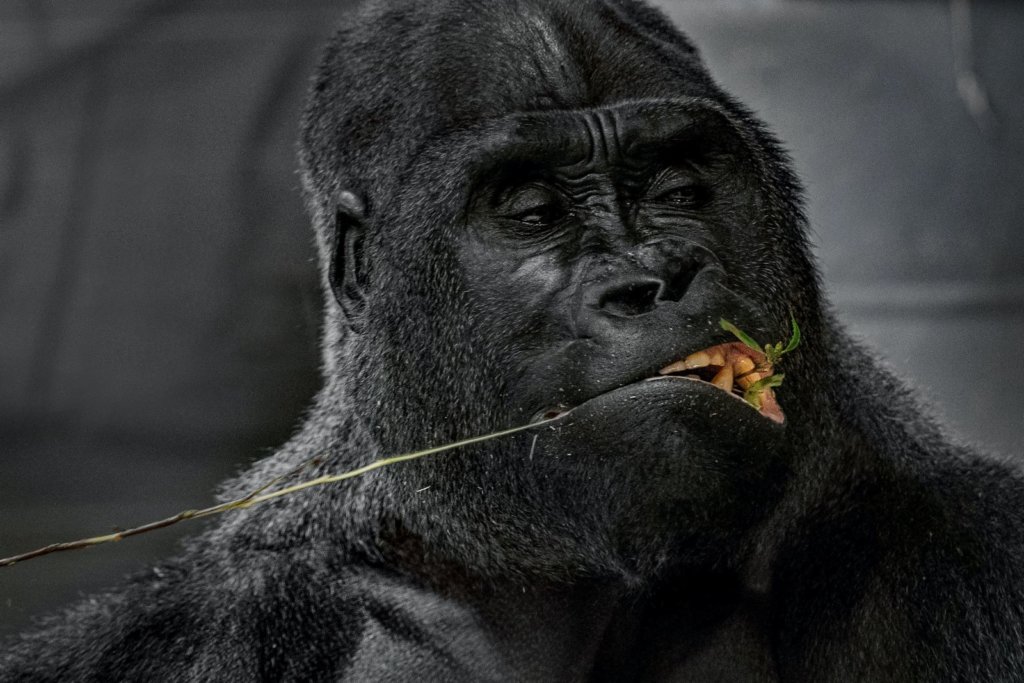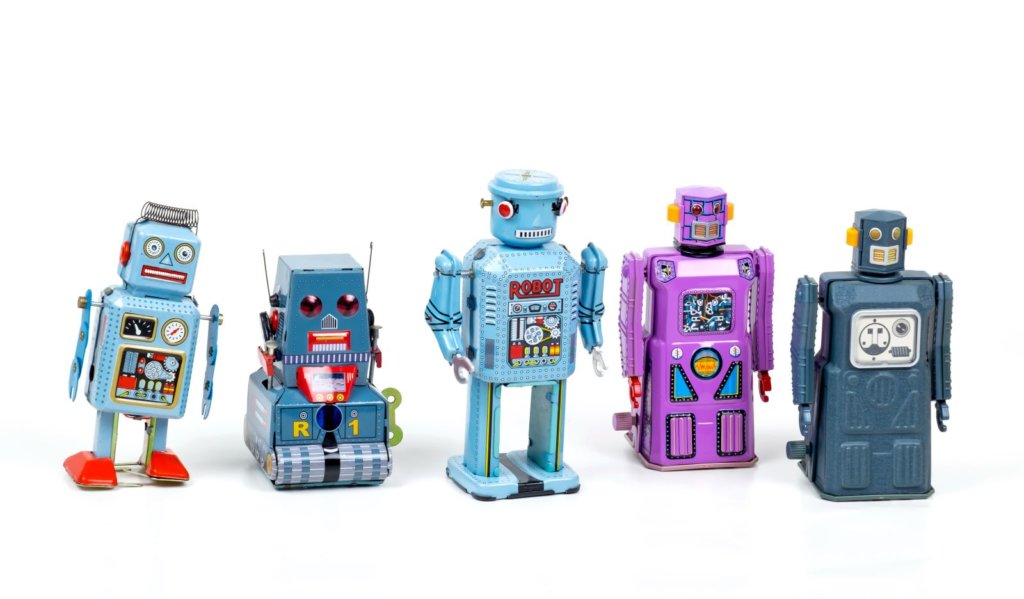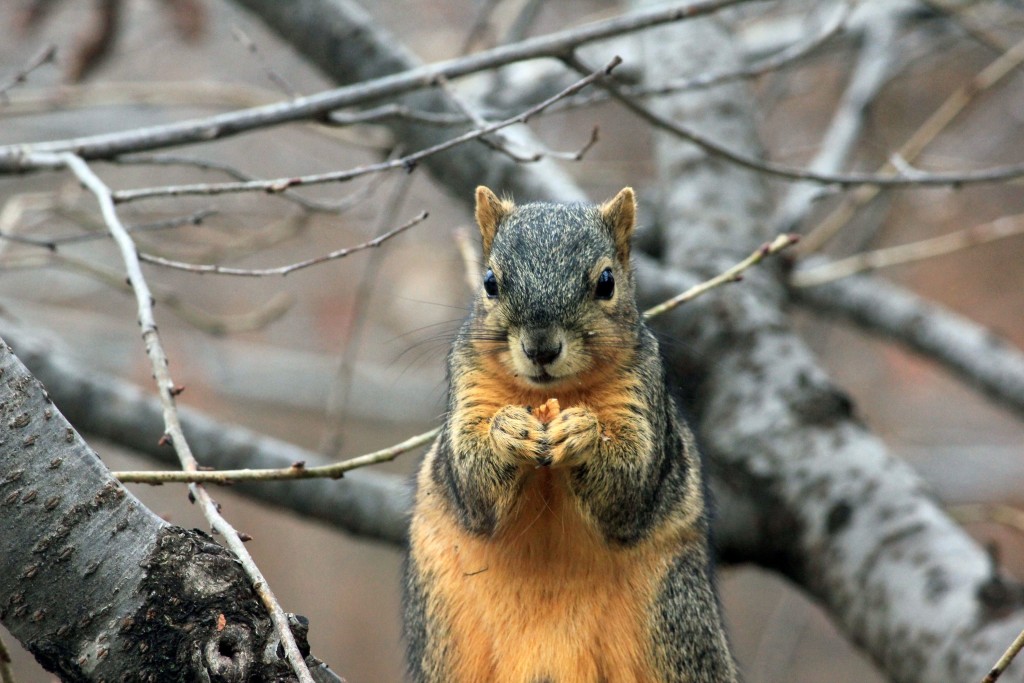My self-esteem has taken a beating this week and it’s all been self-inflicted. I’m comparing myself to other people and coming up short. And look, I know someone out there envies me (and you too), that comparison is the thief of joy, etc., but that doesn’t help me in the moment when my chest burns and my cheeks get hot with envy. It doesn’t help when I’m looking over at so-and-so, marveling at their achievements and wishing I had the same but don’t. My rational brain might as well not exist for all the good it does me when I’m emotionally activated.
The emotional self needs soothing and one way I’m doing that is coming back again, and again, and again to a quote from Richard Tarnas‘ book Cosmos and Psyche. He says there are two ways of grappling with the universe and uses the analogy of two suitors to explain them. In the first approach, the suitor treats the universe as if it has no intelligence and is something to be exploited for his own gain. In the second, the suitor seeks to know you (the universe):
“[N]ot that he might better exploit you, but rather to unite with you and thereby bring forth something new, a creative synthesis emerging from both of your depths. He desires to liberate that which has been hidden by the separation between knower and known. His ultimate goal of knowledge is not increased mastery, prediction, and control, but rather a more richly responsive and empowered participation in a co-creative unfolding of new realities.”
In other words, we are all bringing forth something new and unique as we co-create with the universe. Yes, there are billions of people on the planet and many of them might be doing similar things to me but no person has my unique set of circumstances, experiences, beliefs, and talents. And I’m here to give form to something that would otherwise not exist in the 3D world.

We all have a role to play in co-creation. Photo by Steven Weeks on Unsplash
Posted on my bathroom mirror is the question, “What does my higher power want to work through me? And what part of self needs to step aside in order for that to happen?” It’s a good question. When I’m looking over at so-and-so doing such-and-such, I’m not asking that question. Instead, I’m asking why I can’t be like that person. Doing so robs me and the universe of a gift that could otherwise come into being.
I know it’s cliché to say everyone is unique and special but … everyone is unique and special. There is something only you can birth as you’re participating in a co-creative process with the universe. A quick story for you from Elizabeth Gilbert’s Big Magic: Liz had an idea to write a novel about Brazil in the 1960s that she summarized as such: “It’s about this middle-aged spinster from Minnesota who’s been quietly in love with her married boss for many years. He gets involved in a harebrained business scheme down in the Amazon jungle. A bunch of money and a person go missing, and my character gets sent down there to solve things, at which point her quiet life is completely turned into chaos. Also, it’s a love story.”
Liz researched this story, even sold the idea to a publisher, but got sidetracked by life things. When she came back to the idea two years later, it didn’t have any juice anymore. She couldn’t write it. During this time, she met Ann Patchett and they developed a friendship. They exchanged long, handwritten letters and Ann casually mentioned she was writing a story about the Amazon jungle which could be summarized in exactly the same way as Liz’s.
The finer details of the novel were different but the idea was essentially the same. There’s a lot I could say about this story but the relevant part for this post is that coming from Ann, the story was slightly different — it was a contemporary story, not set in the 1960s. Ann’s was about the pharmaceutical industry and not the highway construction business. She put her spin on it in a way that Liz could not. She made it special because it came from her, not Liz.
There are a ton of similar ideas floating around in the ether but the way I make them concrete, the way you make them concrete, matters. Focusing on what someone else is doing misses the point. All of us are special and all of us have something of value to bring forth into the world. The more we recognize that, the better.
I dream of a world where we realize we’re in a co-creative dance with the universe. A world where we understand every person is bringing forth something that couldn’t have existed without them. A world where we realize there may be a million similar ideas that people are working on but the way we work on them matters. A world where we remember that all of us are special.
Another world is not only possible, it’s probable.
As we enter this new year, I keep thinking about envy. Not the way I normally do in that my chest burns with the emotion, aching to have what someone else does. Instead, I’m thinking about something my former therapist told me, “Someone out there envies you.”
When he first said that to me, I balked. “What?!? My platonic relationships are great, but don’t most people think that? Who complains that their friends are awful? Other than those relationships, how could anyone possibly envy me? I’m not wildly successful, I don’t have a boatload of money, I’m single, and I don’t even live in a large apartment! What is there to envy?!?”
The reason I said that is I was doing exactly what neuroscientists recommend you don’t do to feel happy – comparing up, or in other words, comparing yourself to people who are better off than you are. How did researchers come to this conclusion about comparing up and down? They studied a cohort that’s rife with competition and comparison: Olympic medalists. One study of the 1992 Summer Olympics found bronze medalists tend to be happier than silver medalists because bronze medalists think about how close they were to finishing without a medal at all. However, the silver medalists think about how close they were to winning the gold.

I tried to capture an image that was green with envy. Here’s what I landed on. Photo by Runze Shi on Unsplash
The researchers didn’t just ask people how they felt after the fact, they studied facial expressions and we saw real-time evidence of this disappointment with McKayla Maroney and her now-famous pout. In 2012, she was a crowd-favorite gymnast, expected to win the gold for her individual event. Instead, she made a mistake that caused her to miss the gold medal by one-hundredth of a point. She won the silver and disappointment was written all over her face.
It makes sense of course, but thinking this way, of what could have been and isn’t, what you missed out on, etc. is deadly, literally. Another study found silver medalists’ life expectancy is less than that of gold and bronze medalists and it’s posited this is due to the perceived dissatisfactory competition outcomes. These medalists were so upset about missing the gold, their lives became shorter. Yikes. So what’s the solution here? Compare down, and also maybe broaden your perspective.
I received a dose of perspective a few days ago. A woman whose career I’ve envied for a while isn’t doing so great personally. She got divorced and moved out of the home she bought with her spouse. When I heard the news, I felt pity. Instead of wishing I had this woman’s life, I felt grateful that I don’t. Yeah, her career success would be great, but I don’t want to experience what she does. Furthermore, to bring it back to my earlier comment, my relationships are healthy and fulfilling. I take it for granted that I love and am loved, but not everyone experiences that. In other words, I’m feeling the contentment my spiritual teacher advocates.
He says santośa, or contentment, means a state of proper ease. “Contentment is not at all possible if the individual is running after carnal pleasures like a beast. As a result of extroversial analysis, the objects of enjoyment go on increasing both in number and abstraction and that is why one’s mental flow never gets any rest. Under such circumstances how can one attain perfect peace of mind?”
They can’t, which is why contentment is so crucial. Santośa is not about being satisfied with the crumbs of life. It’s not appropriate to tell someone who is near-starved to be grateful for eating every three days. Everyone has a right to a full and respectful life, and at the same time, there’s something to remembering what we do have and realizing someone out there envies us.
I dream of a world where we spend more time practicing gratitude for what we do have instead of lamenting what we don’t. A world where we recognize if we saw the inner workings of other people’s lives, we wouldn’t want to trade places with them. A world where we practice contentment and compare ourselves to people who have less than us, not more.
Another world is not only possible, it’s probable.
I enrolled in a novel writing class and I confessed to a fellow writer that I feel a lot of pressure to put into practice everything I’m learning. I want my dialogue to conceal and reveal. I want to keep the reader guessing but not withhold too much. I want the plot to be engaging while also emotionally stirring. And I want to do all that perfectly in the first draft.
There aren’t many areas of my life where perfectionism continues to show up, but this is one of them. I care so much about the heroine’s journey novel I’m writing and that means I want to do this story justice. I want it to be the best book it can possibly be and so, hello perfectionism. When I shared this angst with my friend she said to me, “Give yourself the grace of being a newcomer,” and it felt like rubbing aloe vera on a sunburn.
Ahhhhh. Grace. Yes. I know people talk about writing terrible first drafts and understanding that’s a part of the process, but characterizing a draft as “terrible” is a judgment. There’s space for perfectionism because if you know a draft is terrible, that means there’s a certain standard you have for the draft that it’s currently not meeting. When I say to myself, “This draft is awful. God, I can’t believe I wrote this,” I’m judging my efforts and not giving myself grace.

What if I let myself learn like a child? Photo by Anima Visual on Unsplash
I’ve never taken a creative writing class before. I know nothing about novel writing. I didn’t get an MFA; I got a bachelor’s in journalism. Ask me to write an anecdotal lead and I can bang one out in a jiffy. Ask me to write a novel and I’m stumped. In other words, novel writing is completely new to me and by holding myself to a high standard, I’m stifling creativity. I’m not letting myself play around. I’m not extending compassion and forgiveness toward myself. In other words, I’m not treating myself like I treat other beginners.
When my young nieces and nephews draw me a picture, I don’t say, “This is terrible. The head is three times larger than the rest of the body.” No, I exclaim in delight and say, “Wow! Look at that!” because they’re young and they’re just learning how to draw. I want to encourage them to keep going because they enjoy it. I don’t have expectations my nieces and nephews will be famous visual artists by the age of 8. I’m letting them be kids. However, I don’t do that with adults, either myself or others. As adults, there’s an expectation that we are at least competent with whatever we’re doing. That means not sucking at surfing, or not playing the piano without striking the wrong key, regardless of how long we’ve taken lessons.
Psychiatrist Dr. Gail Saltz says, “Culture is consumed with being an expert.” In fact, average levels of social perfectionism rose by about a third from 1989 to 2016 in a study of 41,000 college students. Is that number higher now? Probably.
We’re not giving ourselves the grace of being a newcomer. Even in the numerous articles I read on this topic, the writers said, “Let yourself fail,” or had titles with, “The case for being bad at something.” One even mentioned you’ll start off sucking but eventually, you’ll get better at crocheting or whatever your activity is. How about if we changed that narrative?
What if instead of proclaiming something we’re doing is good or bad, excellent or terrible, we let ourselves just be? What if we treated ourselves like small children, encouraging ourselves to keep learning and growing without judging the outcomes? I’d likely enjoy what I’m doing more. Maybe you would too.
I dream of a world where we approach new skills and hobbies with an open mind. A world where we leave judgment out of the equation as we learn something new. A world where we stop expecting we’ll be an expert at whatever we try. A world where we give ourselves the grace of being a newcomer.
Another world is not only possible, it’s probable.
I had a humbling experience on Friday. While listening to my new favorite podcast, “The Happiness Lab,” the host Dr. Laurie Santos discussed inattentional blindness, or the inability to perceive objects if we’re not paying attention to them. She ran an experiment with her Yale students where she showed them a video of people passing a basketball. She asked her students to count the number of passes among people wearing white shirts.
When they revealed the answer – 15 passes – she said, “Great! But did you notice the person wearing a gorilla suit walk through the circle of players?” Invariably, the students said, “No. What? A person was wearing a gorilla suit?” When I heard this, I thought to myself, “Wow! Really? They didn’t notice? I bet I would pick up on the person in the gorilla suit. After all, I’m a highly sensitive person and notice things people miss.”

You would think a gorilla is easy to spot! Photo by Patrice Audet on Unsplash
Dr. Santos also mentioned when people are pressed for time, they are more likely to have inattentional blindness. In other words, rushing causes us to stop noticing small details. Well, on Friday night, I was rushing and received a telephone call from a friend named Michael. I have six Michaels in my contact list and texted the most recent Michael that showed up in my text conversations and said, “I got your message, I’ll call you in an hour.” I called him in an hour, he didn’t answer, and I noticed his outgoing voicemail recording had changed.
It was only after my friend said, “Hey, did you mean to call a different Michael?” that I put it together. D’oh! Called the wrong one! Here I was thinking I’m immune to inattentional blindness and it turns out, no, I am not. I zeroed in on the name “Michael” and blocked out the last name. The experience reminded me that I am one among many. Yes, I often fall into the outlier category, but that doesn’t mean I’m better than anyone else and, yet, that’s exactly what I started thinking on Friday before calling the wrong “Michael.”
My spiritual teacher says most people suffer from some sort of complex: an inferiority complex, superiority complex, fear complex, etc. He adds that “a complex of any sort is a psychic malady, a psychic disease. To consider oneself superior to others is a serious human mistake. Similarly, thinking oneself inferior to others is also a mistake. To suffer from an inferiority complex is also a psychic ailment. You must not encourage either a superiority complex or an inferiority complex. You must maintain a psychic balance; you must maintain a mental balance.”
Maintaining a mental balance for me means recognizing I’m human, I make mistakes. It means adopting an attitude of humility, or freedom from pride and arrogance. When I looked up the origin of the word “humility,” I found it stems from the Church Latin word humilis, which literally translates as “on the ground.” Also, part of the word humility’s etymology is other words that mean “Earth.” I like that. Being humble means keeping my feet on the ground, staying present here on Earth, and recognizing I’m no better and no worse than anyone else. In other words, I am also likely to miss a person wearing a gorilla suit.
I dream of a world where we recognize we are no better and no worse than anyone else. A world where we understand we all have strengths and weaknesses but that doesn’t mean we’re superior or inferior to others. A world where we place ourselves on equal footing with our fellow human beings. A world where we adopt an attitude of humility and realize we are likely to miss a person wearing a gorilla suit.
Another world is not only possible, it’s probable.
Sometimes I have the expectation of myself that I’ll function like a robot. That no matter the circumstances, no matter how I’m feeling, I’ll be able to accomplish XYZ regardless. And if I’m not able to accomplish XYZ, then I beat myself up and make meaning from it like, “You’re so lazy.” This may sound silly, but what I often forget is that I’m a human and human beings are not robots. We aren’t able to show up the same way every day.
Something my therapist says is, “Everyone is doing the best they can at every moment and sometimes their best sucks.” Yep. I’m doing my best every day and sometimes my best sucks. Sometimes my best entails lying in bed under a pile of blankets watching terrible television because I can’t motivate myself to contact potential new clients. Sometimes my best means my bathroom mirror has flecks of toothpaste on it because cleaning it feels like too much effort.
I see this lack of respecting the natural ebb and flow of each person reflected in society. The other week I wrote about how people are turning into small children, throwing tantrums in grocery stores, and yes, it’s because many of us struggle with feeling our feelings, but I also think it’s because in the U.S. anyway, we forget we’re human and instead we’re being asked to function as if we aren’t. Your kids are home from school? You should be able to accomplish as much work as if they weren’t! Your colleague is out sick with Covid? You should still be able to meet that deadline! Um, no.

They’re cute, but let’s not aspire to be like them. Photo by Eric Krull on Unsplash
The expectation that life can or will continue as normal even when circumstances change is absurd. We are not robots and it’s not feasible to “power through” everything. Furthermore, maybe we’re not supposed to power through! Maybe we’re supposed to be smart, adaptable human beings that fluctuate day by day. This is something living with a chronic illness teaches me over and over again. Some days I can go for a swim, write for hours, clean my house, make dinner from scratch, and connect with friends. And other days I’m only capable of getting dressed and heating up a premade meal. Both happen and yet I beat myself up on the days I don’t have energy to do as much as I’d like. A lot of it has to do with internalized capitalism, but it’s also because of the expectations I place upon myself.
What if instead I treated myself with compassion and understanding? What if instead I recognized that at some point the bathroom mirror will get cleaned and inspiration will strike to contact potential new clients? Because that always happens. It reminds me of a quote from the late, great, Thích Nhat Hạnh who said, “No one is more worthy of your kindness and compassion than you are,” and also, “Real love means loving kindness and compassion, the kind of love that does not have any conditions.”
Real love for myself and others means recognizing we each have good days and bad days. It means understanding there’s a natural rhythm and cycle to life. It means acknowledging as much as society wants us to be robots, we aren’t. We’re human beings and human beings fluctuate, make mistakes, and have limitations. For better or for worse, we show up differently every day and not only is that OK, it’s natural, normal, and to be expected because again, we’re not robots.
I dream of a world where we treat ourselves with love and compassion. A world where we reduce the expectations we set for ourselves. A world where we understand our best will change from day to day. A world where we remember we aren’t robots.
Another world is not only possible, it’s probable.
Sometimes I think the expression, “Don’t just do something, sit there,” was made for me. I’m not prone to inertia and people often describe me as “tenacious” and “hard-working.” That’s true, and it means I have trouble with the reverse: giving up.
I don’t know when to let go, not only of people and relationships, but also situations. It’s confusing because the message society sends over and over again is, “Don’t give up! Keep going!” Except, that’s not working for me. To give a small example, I’ve queried 55 literary agents since February 2020 for a romantic comedy I wrote and thus far, every single one of them has said, “No.” I’m still waiting to hear back from three agents, but I don’t feel all that hopeful. At the moment, I don’t have the energy to keep pursuing an agent for this book.
Instead of telling me, “Try harder!” my therapist recommended I take a break and let myself feel what arises when I do so, which is disappointment. He says it’s important for all human beings to deal with disappointment, to cry, and not keep trying to “fix” whatever is causing the disappointment. After shedding those tears, then perhaps there will be a new energy, a brainstorm for approaching the issue differently. Regardless, compulsive trying only results in frustration for me. That makes sense when you consider the five Buddha families, also called the five wisdom energies, which are Buddha, Vajra, Ratna, Padma, and Karma.

There’s power in pausing. Photo by Lukasz Saczek on Unsplash
Each person has a predominant Buddha family with strengths and weaknesses. For instance, Vajra family people have an aptitude for mental clarity and the ability to correct any distortions. They are scientific, logical. But when they are encumbered, when their energy is bound up, they can become angry, judgmental, and critical.
All of the Buddha families speak to me, but the one I align with the most is the Karma family. Karma family people are hard-workers, they know how to get things done. When their energy is encumbered, they become envious, comparing themselves with others and finding themselves lacking. (Did you laugh upon hearing that? I know I did because the description is so apt.) The meditation for a Karma family person is to be in the flow, to think about the wind picking up a sail so that it moves with ease, not force. In other words, the practice for people like me is to take inspired action, not compulsive action.
I’ll admit, that’s so freaking hard because my compulsive doer is strong, but taking inspired action seems to be the message I’m receiving over and over again. The universe seems to keep telling me, “Pause, my dear. Just pause.” This is also in alignment with my spiritual philosophy because my teacher says, “[M]ovement through speed and pause is an essential factor for each and every animate or inanimate object. Wherever there is existential factor there must be this pulsation. An entity acquires strength and stamina during the pause phase, and emanates vibration during the speed period. There cannot, however, be any absolute speed or absolute pause in the created world.”
In other words, I’m paused now but it won’t be permanent. I just have to wait for wind in my sails.
I dream of a world where we recognize the power of pause. A world where we understand constantly doing all the time is a recipe for burnout. A world where we learn to take inspired action and until that inspiration strikes, we rest easy, knowing our time will come.
Another world is not only possible, it’s probable.
I’ve been struggling a lot this week with “not enough” syndrome. I don’t feel like I’m doing enough in the world, that I’m not helping others according to my capacity, and furthermore, what work I am doing, I pooh pooh as insignificant.
As you know, my skill and talent is writing, but when I look around at me at all the work that needs to be done in the world, it feels like being a writer is useless. I’m not a policymaker or a politician or a doctor. I’m not doing anything concrete to end poverty, for instance, and I hate it.
I spoke with a friend about all this and he reminded me the gifts I’ve been given are gifts. I have them for a reason and it’s important to use what I have. So no, I’m not a doctor or a politician or social worker, and that’s OK. We all have a part to play to contribute to the whole.
I’m reminded of the Indian epic the Rámáyańa, but there are stories like it all over sacred texts. During construction of a bridge, the big monkeys carried large stones while the small squirrels brought only tiny grains of sand. My spiritual teacher says, “Is there any difference between the carrying of tiny grains of sand by the squirrels on the one hand and the carrying of a whole mountain by [the God] Hanumán on the other? Both are equally valuable. You may be a small entity like a squirrel, but your existence is in no way insignificant.”
I think I need to tattoo that to my face. I get so caught up in the comparison game, often called “compare and despair” by my recovery friends. I compare myself to what other people are doing and always come up short. I am the squirrel looking at the monkeys saying, “Look at the big rocks they’re carrying! Ugh. I wish I could carry big rocks.” I’m not honoring my contribution of small grains of sand and that’s what’s important – not how large my contribution is, but whether I’m contributing at all. It’s so hard for me to say that because, as I said earlier, I suffer from “not enough syndrome.” I feel like I could be contributing more, and maybe that’s true, but in the moment, my capacity is not all that large. My health isn’t amazing, so no, I can’t do as much as I could before, but maybe that’s OK.
What I’m getting at here, what I’m trying to convince myself of really, is that the important thing is I’m doing something at all. Am I working to my capacity? If so, then I can let myself off the hook for not carrying the big rocks. Because again, a squirrel is just as important as a monkey in the construction of a bridge.
I dream of a world where we work according to our capacity. A world where we understand it’s not important whether we’re contributing a little bit or a large bit, what matters is that we’re contributing at all.
Another world is not only possible, it’s probable.
During a conversation with a friend this week I kept hearing the refrain, “Why aren’t you more like her? She is better than you are. Change yourself. Why aren’t you more like her? She is better than you are. . .” It was on a loop in my head.
